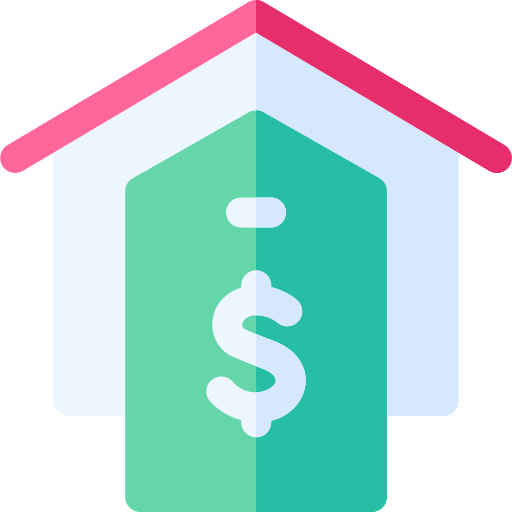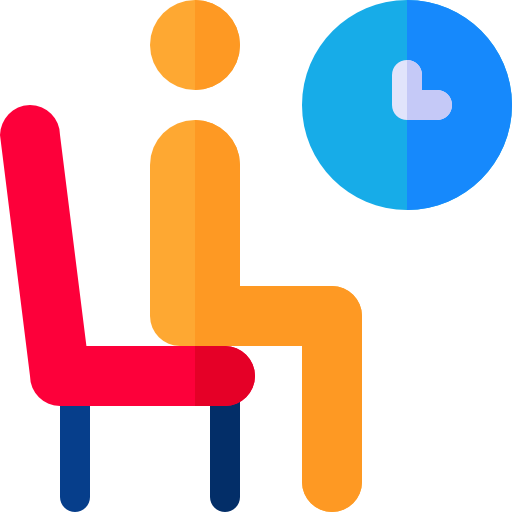Cash Out Refinance
As you start to make payments on your mortgage, you gain equity in your home. Equity refers to the amount of a home’s value that you have paid off. With a cash out refinance, you can take advantage of the equity you have built up over time and receive cash in exchange for a larger mortgage. With a cash out refinance, you borrow more than you own on your mortgage and pocket the difference.
Put your home’s equity to work for you and use a cash out refinance as a tool to achieve your financial goals, which may include:
- Consolidating debt and reducing your total interest payments each month.
- Making improvements to your home and increasing its overall value.
- Financing larger purchases or investments.
- Buying an investment home and bringing in more money.
The possibilities with a cash out refinance are endless! Let us tell you more about this type of refinance opportunity.
What Does a Cash Out Refinance Mean?
A cash out refinance takes the equity that you have built up over time and lets you “cash out” that equity in exchange for a larger mortgage. A cash out refinance does not add another monthly payment, it pays off your old mortgage and replaces it with a new mortgage.
After you have completed your cash out refinance, you can do anything you want with the money from your equity.
Great Ways to Use a Cash Out Refinance
- Kitchen remodel
- HVAC system replacement
- New patio deck
- Unexpected hospital bills
- College tuition
- Pay off high-interest credit cards
Not-So-Great Ways to Use a Cash Out Refinance
- Vacation fund
- Maintain an unrealistic lifestyle
- Supplemental income
- Pay off a small credit card balance
How Much Money Can You Get on a Cash Out Refinance?
The amount of cash you can take out on your refinance will depend on your home’s current value. You will need to get your home appraised before you can find out how much you qualify for. The amount of cash you can get on a refinance will depend on the lender that you use and their qualifications. Most lenders let you take out up to 80% of your home’s value.
Why Should I Consider a Cash Out Refinance?
There are endless reasons to use a cash out refinance. This type of refinance can present many advantages over other loan types or a second mortgage. Here are some reasons why you should consider a cash out refinance:
- Fund Home Improvements
- Consolidate Debt
- Get a Lower Interest Rate
- Invest Money
- Buy an Investment Property
- Buy a Second Home
- Source of Emergency Capital
Things to Know Before Committing to a Cash Out Refinance
-

You Will Probably Need to Leave Equity in Your Home
Depending on your loan and your lender, you will most likely need to leave a certain amount of equity in your home and will not be able to cash out the entire amount.
-

You Will Need an Appraisal
A cash out refinance is based on an appraisal of your home. An appraisal will determine how much your lender is willing to give you.
-

You Will Need to Pay Closing Costs
The cash out refinance process is very similar to a traditional closing process, meaning that you will have to pay closing costs on your refinance. Common cash out refinancing closing costs include credit report fees, appraisal fees and attorney fees.
-

You Won’t Get the Cash Immediately
Before your lender can approve your refinance, you need to submit to underwriting and go through the appraisal process. This takes some time and will limit you from receiving the cash immediately.
-

Your Loan Terms May Change
When you go through the process of a cash out refinance, you will pay off your original mortgage and replace it with a new one. This means that your new loan may take longer to pay off, and your monthly mortgage payments may be different as well as your interest rate.
Pros:
- Debt Consolidation: Credit card and car loans often come with high interest rates and large monthly payments. A cash out refinance can wrap all those expenses into one payment at a considerably lower interest rate. As a bonus, paying things off early and having fewer accounts open can also raise your credit score.
- Lower Rates: It’s a great time to crunch some numbers as current interest rates are historically low. While this would lower your monthly payment in a traditional refinance, in a cash out refinance, it’s a good possibility you could keep your current monthly payment, and the cash from the equity your home has accumulated.
- Larger Loans: Depending on how much equity you have in your house from paying down the balance, making home improvements that add value, or an increase in property values, you could be looking at a 5-didgit difference in between what you owe and what you need to borrow. This can result in a significant amount of money to help pay off debt, make repairs, or help get through a tight patch.
Cons:
- Interest Accrual: Starting over with a lower rate may sound good, but it also means you are starting over from the beginning of the loan. Starting over with a new loan term can increase your lifetime interest costs. Checking amortization tables on your existing loan verses the new loan will help you decide if getting some more money now will be worth it in the long term.
- New Loan Term: This is only a “con” in specific scenarios. For example, if you are approaching retirement and plan to live a mortgage-free lifestyle, your loan term would start over from scratch and make that goal harder to achieve.
- Closing Costs: Don’t forget the fees associated with refinancing when you’re adding everything up. Closing costs are required with every refinance and range from 2%-5% of the mortgage. On a $200,000 mortgage, that’s a possible one-time expense of $4,000 to $10,000.
What is the Difference Between a Cash Out Refinance and a Home Equity Loan?
- A cash out refinance pays off your existing mortgage in return for a new one while a home equity loan is a separate loan from your mortgage and adds a second payment.
- Since cash-out refinances are first loans (meaning they’ll be paid first in the case of a foreclosure, bankruptcy, or judgment), they typically have lower interest rates.
Frequently Asked Questions
What is a Cash Out Refinance loan?
A cash out refinance is a type of mortgage refinance that takes advantage of the equity you have built over time and gives you cash in exchange for taking on a larger mortgage.
Can Cash Out Refinance be used for anything?
Yes. You can spend the cash on anything you want. A cash out refinance is a great way to pay for a home improvement project, debt consolidation or unexpected bills.
Does Cash Out Refinance increase mortgage payments?
Because a cash out refinance is replacing your old mortgage with a new one, your monthly mortgage payments may change.
Does Cash Out Refinance affect credit scores?
A cash out refinance can affect your credit score in two ways: replacement of old debt with new and the assumption of a new loan balance could increase your credit utilization ratio.
Does Cash Out Refinance affect property taxes?
A cash out refinance may affect your property taxes if you are using the money to fund a remodel on your home.
Do I need to pay closing costs?
Yes. Just like a traditional mortgage, a cash out refinance will also require a borrower to pay closing costs.
What are the fees of a Cash Out Refinance?
Expect to pay about 3-5% of your new loan amount during your closing. These fees include the appraisal fee to assess your home’s current value.
How Do You Calculate Home Equity?
Subtract the amount you owe on your home by your home’s appraised value.
How much can I get with a Cash Out Refinance?
Most lenders allow you to borrow up to 80% of your home’s value.
Do I need to pay taxes on a Cash Out refinance?
No. The IRS does not view a cash out refinance as income; they view it as an additional loan. You do not need to include cash from your refinance on your annual taxes.
Find Out More
Learn more about the different types of loans and refinance options available and discover whether a Cash Out Refi is right for you by reading our blog article on the topic.
Contact Us
Depending on your financial goals, a cash out refinance may be a great option for you. Whether you want to complete some home improvement projects, pay down debt, or pay for college tuition, a cash out refinance can be a perfect tool to help you achieve your goals. Contact AnnieMac Home Mortgage today to get started.
